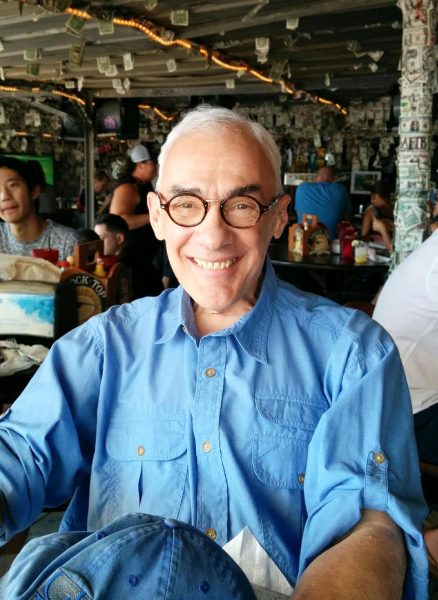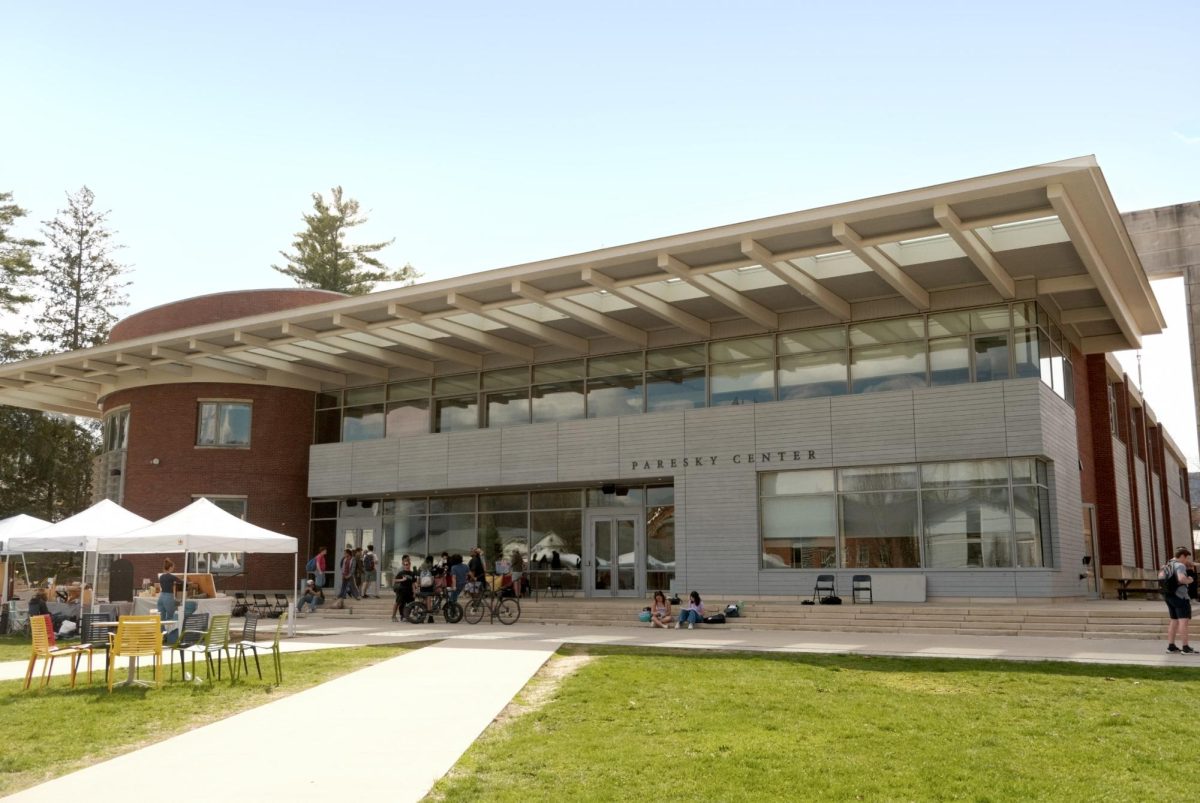
Professor of Economics Stephen Sheppard died on March 2 at the age of 69. He taught at the College from 2000 until the 2023 fall semester. Students and faculty remember Sheppard as a deeply curious and passionate man and an integral part of both the economics department and the larger College community.
Sheppard was born in 1955 in Salt Lake City, Utah. A first-generation college student, he received his bachelor’s from the University of Utah and his master’s and doctorate from Washington University in St. Louis, Mo., all in economics. He taught economics at Virginia Tech and Oberlin before coming to Williams in 2000.
Sheppard married his wife, Kay Oehler, in 1977. Oehler remembers Sheppard’s love of work with his students, especially seniors writing theses. He kept in contact with many former students, some of whom are current professors. “He’d go to a meeting and they would see him at one of the cocktail parties and rush over and give him a hug,” Oehler told the Record.
While Sheppard specialized in urban economics, Oehler added that he loved exploring a breadth of subject matters. “He would read literature, science, and art, beyond economics,” Oehler said. “He could talk to anybody about anything.”
Sheppard and Oehler had two children, Zack and Rachel Sheppard. Zack remembers his father’s love of traveling. “Whenever he and I would go traveling together, you couldn’t stop him from meeting random new people,” he said.
“He just loved to travel and loved new experiences,” Oehler added.
At the College, Sheppard was dedicated to his research, specifically on urban economies and housing markets. He taught many courses, including “Price and Allocation Theory” and “Acquiring Art.”
Kevin Murphy, WCMA senior curator of American and European art, co-taught “Acquiring Art” with Sheppard, and the pair were in the midst of co-writing a book on the course when Sheppard passed away. “Steve was an incredibly curious scholar,” Murphy said. “He was always trying to push the limit of what he could do at the intersection of humanities and social sciences. He made me a much more generous professor because of how generous he was to his students in supporting their academic work.”
Professor of Political Science Michael MacDonald, one of Sheppard’s close friends, met him while serving together on an ad-hoc committee on athletics. MacDonald remembers Sheppard’s good nature, recounting times when Sheppard spent over 30 minutes talking with MacDonald’s wife. “Sometimes male academics nod their head and pretend to listen,” MacDonald told the Record. “Steve was genuinely interested.”
Professor of Economics Ralph Bradburd co-authored articles with Sheppard, and the two often discussed economic policy. “He was the epitome of a great college professor,” Bradburd told the Record. “He was always eager to learn about new ideas and the way they might connect to economics.”
Sheppard and Professor of Economics Peter Montiel met roughly 30 years ago as colleagues at Oberlin’s economics department before coming to teach at Williams. Montiel noted Sheppard’s interest in the impact of the arts on the local economy and his involvement with the Massachusetts Museum of Contemporary Art (MASS MoCA). “MASS MoCA was a huge change for North Adams, and Steve was the right guy to try to think about what differences that made to peoples’ lives in terms of their economic standard of living,” Montiel said. “That’s something a lot of us in academia don’t really do — get involved in the local community.”
Sheppard’s students also remember his generous spirit and love for economics. Karla Cabrera ’25 met Sheppard as a student in “Price and Allocation Theory” but got to know him when he was her mentor for the Allison Davis Research Fellowship last summer. “Professor Sheppard was one of those teachers who genuinely cared about your success and did everything he could to support you,” Cabrera wrote in an email to the Record. “It was rare to leave an interaction with Professor Sheppard without a smile on your face.”
Semra Vignaux ’24 — who would go on to pursue the Sentinels Summer Public Policy Research Fellowship under Sheppard’s advising — studied “Price and Allocation Theory” and “Acquiring Art” with Sheppard, and later worked as his teaching assistant. “Most of all, Professor Sheppard was a really incredible mentor,” she wrote to the Record. “He was kind, funny, approachable, and passionate about his research because he made his side hobbies into his work interests.”
Sheppard also taught “Gentrification and Neighborhood Change,” a tutorial Josh Kirschner ’24 remembers fondly. “I was lucky to be taught by a person who was so thoroughly interested in his life’s work,” he wrote to the Record. “And even more than that, who was interested in sharing that with his students. I am privileged to have gotten to know a person so excited by life.”
“He had a profound impact on students, the economics department, the College, and the wider community,” Bradburd said. “It’s hard to do any better than that.”














